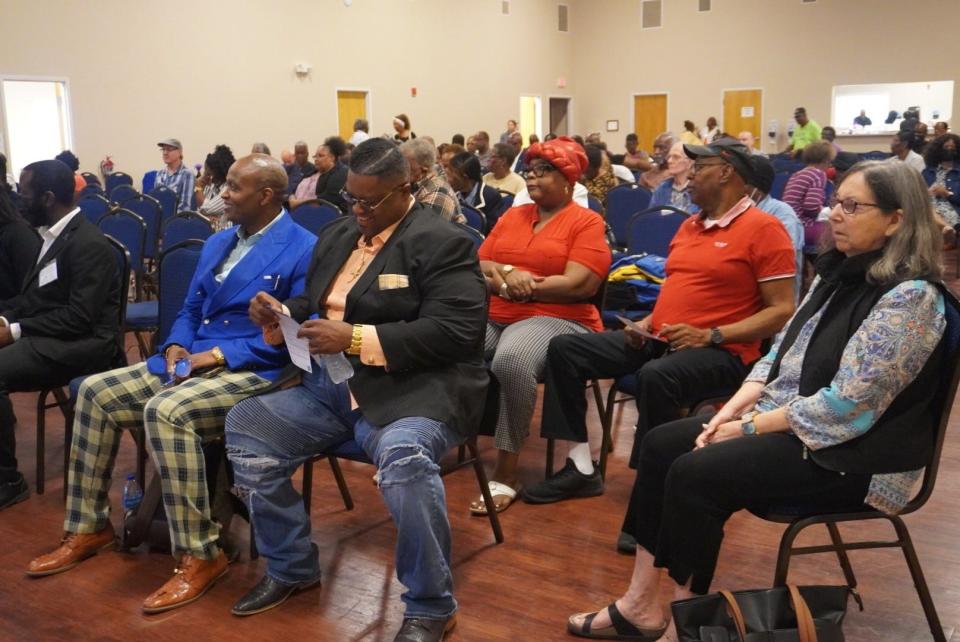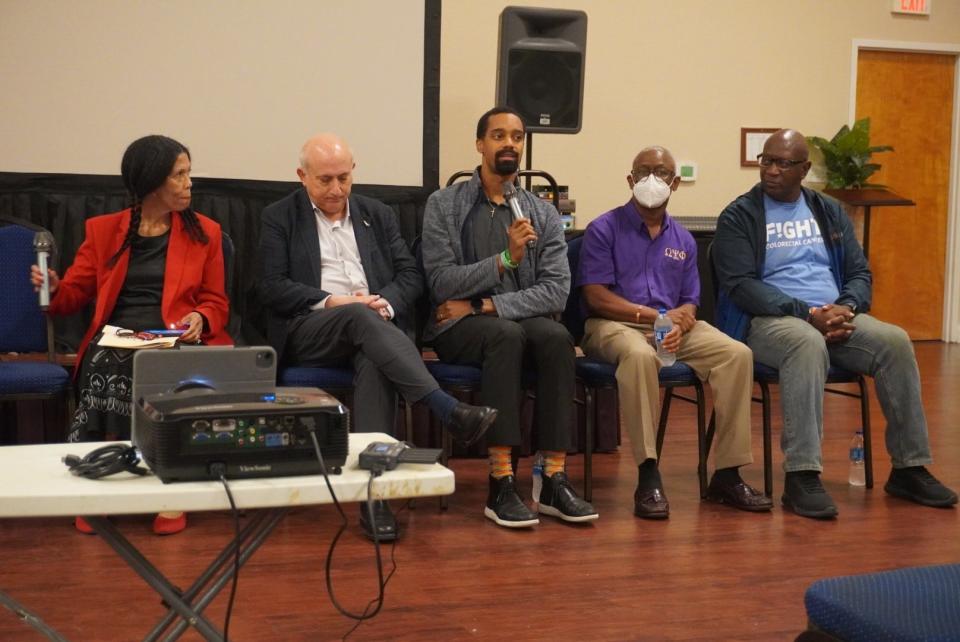Colon cancer event in Gainesville features survivors educating others
Black residents in Gainesville received advice from doctors and their peers on preventative tips and ways to receive treatment for colorectal cancer, also known as colon cancer.
Hundreds of people attended the Power Over Colorectal Cancer Gathering for Men and Women on Saturday at Springhill Baptist Church at 120 SE Williston Road.
Hosted by UF Health Cancer Center Community Partnered Cancer Disparities Research Collaborative (CDRC) and the Office of Community Outreach and Engagement, the event was held to increase awareness in the Black community about colorectal cancer being the third most common cancer in both men and women in the U.S., according to the U.S. Center for Disease Control and Prevention in Atlanta.
Carolyn Tucker, Ph.D., CDRC executive director, said the gathering is a great way for residents to receive answers firsthand from peers and professionals.
“It is so exciting to see people supporting each other,” Tucker said. “A woman who was a cancer survivor told a woman who tested positive for colorectal cancer that it is not a death sentence. This gathering makes people feel hopeful and teaches them how to prevent colorectal cancer.”
Eating healthier and exercising are great ways to prevent colorectal cancer, Tucker said.
“Obesity is a strong link to colorectal cancer,” Tucker said.
Guardian Newsletter: Gainesville Guardian will transition to an email newsletter format
Tucker received the Florida Blue Sapphire Award in April because of her dedication to community service and fighting disparities that included $100,000 being granted to help support her work at the University of Florida.
“We learn from each other and the true experts are the people in the community who face challenges when it comes to their health,” Tucker said. “We teach them to be assertive with their doctors and ask questions.”

Attendees were broken up into six groups to have an intimate discussion with their peers and doctors.
“Be comfortable looking at your bowel movement,” said Staja Booker, Ph.D., during the breakout session to a group. “Make sure it is consistent and take note of that and mention that to your provider.”

According to UF Health Cancer Center, Blacks are 20% more likely to get colorectal cancer than most other groups and about 40% more likely to die from it.
Colorectal cancer is a disease in which cells in the colon or rectum grow out of control. The colon is the large intestine or large bowel.
According to the CDC, some symptoms of colorectal cancer include:
persistent diarrhea or constipation, or a change in stool consistency.
rectal bleeding or blood in your stool.
persistent abdominal discomfort, such as cramps, gas or pain.
a feeling that your bowel does not empty completely
Dr. Leighton Elliott, a UF chief hematology and oncology fellow, gave a presentation on how to prevent colorectal cancer and talked about why people should consider participating in clinical trials.
“The idea behind the trials is to advance our treatment,” Elliott said. “I want to break the stigma. I sometimes hear, ‘I don’t want to be a guinea pig.’ We are trying to improve your care, not only for you but the people after you.”
Dr. Thomas George, a hematology and oncology specialist and deputy director of the UF Health Cancer Center, discussed the innovative treatments for colorectal cancer.
George talked about seeing if a patient has cancerous polyps in their colon through a colonoscopy, which is a procedure where a doctor uses a flexible tube with a camera to look inside the rectum and colon.
“We study to see if your colon is prone to getting polyps, how much pre-cancer was there, and how big they were,” George said.
Polyps are small clumps of cells that form on the lining of the colon or rectum.
Through screenings, polyps can be identified and removed before they can develop into cancer, George said.
Doctors on the panel said 45 years old is the standard age to get screened for colon cancer, however, if someone in your immediate family was diagnosed with it, they advised to be screened earlier.
“Seeing the presentations from the doctors was very important to those who may not know a lot about the disease,” said Sheryl Baker, a local resident who attended the event. “Everyone was well-versed and articulate in the presentations. Hearing the stories in the breakout sessions was inspirational to me.”
This article originally appeared on The Gainesville Sun: Event educates Black community about colorectal cancer in Gainesville

